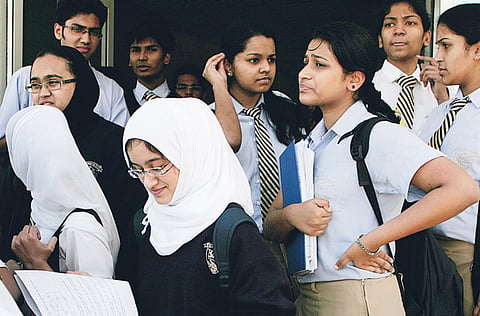Fee tug-of-war continues
Schools allege improvements held to ransom by freeze but regulator unmoved

Dubai: When it comes to the question of how profitable the business of education can be, investors and the Knowledge and Human Development Authority (KHDA) are always at loggerheads. While the former group is in favour of a free market where school fees are dictated by demand-supply balance, the latter has endorsed a ‘control and regulate' approach towards private education.
The relationship between the two parties has grown volatile over the past two years, turning the educational sector into a battlefield of wits and words.
Raising tuition fees and thus over-burdening parents, private schools paint a different picture of how their business has taken a hit due to the disparity between growing operational costs and approved fee increases.
GEMS, which owns the biggest chain of private schools in the UAE, is in the forefront in the fight against a fee freeze, arguing that a regulated market will stifle further investment. Sunny Varkey, chairman of GEMS, in an open letter to the KHDA, said schools like Our Own English High School that have existed for over 40 years are at a breaking point since fees are not restructured to match operational costs.
Cost concerns
According to GEMS, five out of seven of their mid-market schools incurred net losses in 2009. From 2004 to 2009, GEMS maintains, tuition fees increased by 27 per cent and total operational costs shot up by 57 per cent. The provider says in countries where tuition fees are unregulated, increases occur year on year on average by around 6 per cent. "It is the investors that take the risk when building a school, no one else. It is they who borrow money from the bank to build and operate a school, and it is the investor who has to pay the money back. That is why all private schools must be sustainable. We do not receive donations or grants like not for profit schools," said Varkey,
Similarly, countering KHDA's arguments on falling operational costs, especially rentals, is Taaleem, the second largest private operator in Dubai. Ziad Azzam, CEO of Taaleem, said since most of the commercial rentals are long-term with between 3 and 8 per cent annual increments, they are not negotiable like housing rents. "In one case, we have a situation where we are spending 109 per cent of our fee income on staffing costs alone to maintain high standards. Obviously this is not a situation that is sustainable in the long term," he said in a statement to Gulf News.
On the school regulator's blanket ban barring all schools from raising their fees this year, Azzam said the "cookie-cutter approach to setting fees in schools simply does not work. This year at least 17 schools were denied permission to increase fees by the KHDA.
Fighting the cause of investors in the sector is the Dubai Private Schools Group (DPSG), a lobby group formed by school owners in June 2009 after authorities linked fee increases to school inspection reports. Retired major general Sharaf Al Deen Sharaf, Chairman of the DPSG, said anywhere in the world, it is an accepted business standard that investors are allowed to seek returns and education is no different. "Every year, there is an increase in all aspects of cost. Though the economy has stabilised, there is no drop in teachers' salaries and other costs that we incur. If the government puts a ceiling on our profit levels or say it has to be done as charity, nobody will invest in education," said Sharaf who has a stake in two private schools in Dubai. On the controversies surrounding fee increases, he maintained that KHDA is acting under pressure from parents and the situation is putting a lot of strain on private providers.



